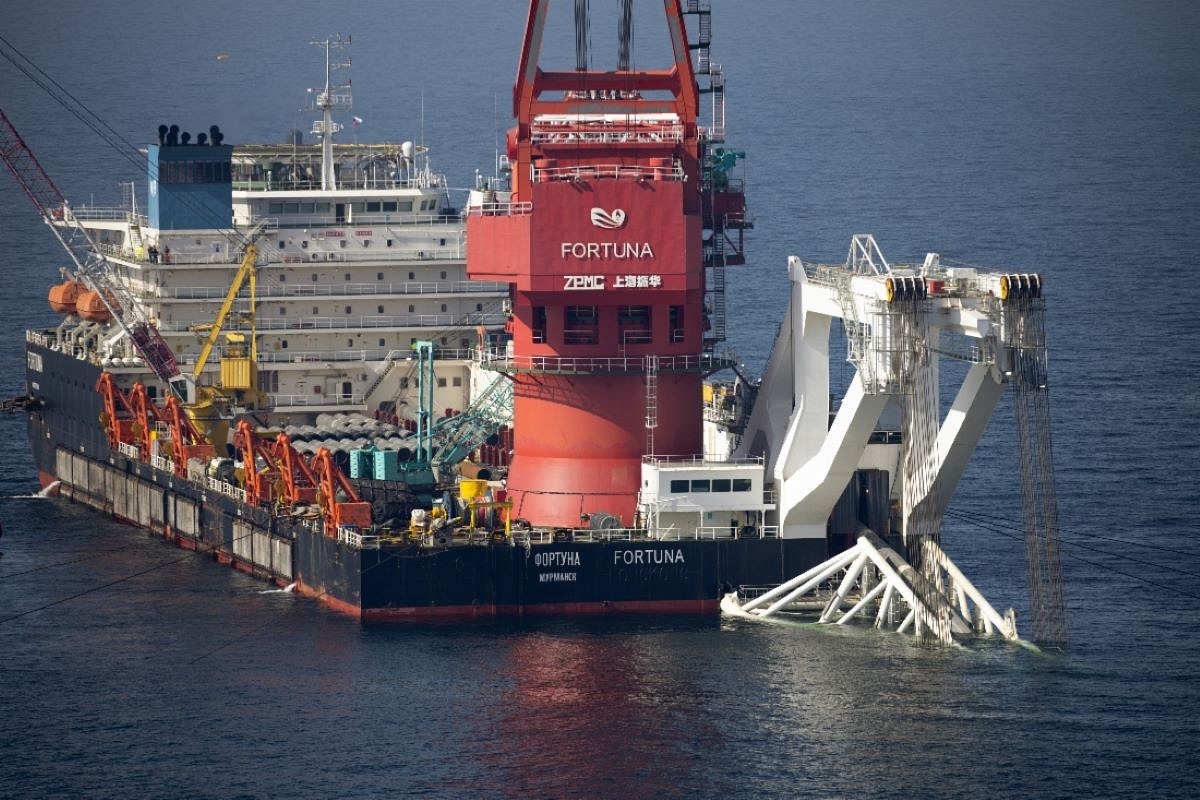Infrastructure
Germany: Vice-Chancellor Robert Habeck Urges Citizens To Save "Every Kilowatt Hour" OF Energy After Russia's Gazprom Cuts Gas Supply By 40%
- Germany's vice-chancellor Robert Habeck has again urged citizens to save energy after Russian's state-owned gas behemoth Gazprom announced this week that gas flows from Russia to Germany through the key pipeline Nord Stream would be reduced by about 40 percent.
- Habeck termed Gapzrom's decision "political," as no technical or legal reason for the delay could be found. Habeck had issued a warning in May that Russia would "weaponise" its fossil fuel resources.

Nord Stream 2
Germany's vice-chancellor Robert Habeck has again urged citizens to save energy after Russian's state-owned gas behemoth Gazprom announced this week that gas flows from Russia to Germany through the key pipeline Nord Stream would be reduced by about 40 percent.
Russian President Vladimir Putin “is doing what was to be feared from the beginning: He is reducing the volume of gas, not in one go but step by step,” Habeck said in a video posted by his ministry on Twitter on Wednesday (Jun 15) night.
Habeck termed Gapzrom's decision "political," as no technical or legal reason for the delay could be found. Habeck had issued a warning in May that Russia would "weaponise" its fossil fuel resources.
Habeck praised the willingness of Germans and business to save energy and store gas. German energy authorities also assured that storage facilities were significantly fuller than in previous years.
“Now is the time to do so,” he said. “Every kilowatt hour helps in this situation. It is a situation that is serious, but not a situation that endangers supply security in Germany.”
Natural gas accounted for nearly 27 percent of Germany’s total energy consumption in 2021, mostly for heating and industry purposes and to a much lower extent (around 15%) for electricity production. Germany managed to quickly reduce its dependence on Russian gas since the invasion, from around 55 percent in February to around 35 in May 2022. However, it still faces the significant challenge of replacing the remaining share with alternative sources.
Introducing ElectionsHQ + 50 Ground Reports Project
The 2024 elections might seem easy to guess, but there are some important questions that shouldn't be missed.
Do freebies still sway voters? Do people prioritise infrastructure when voting? How will Punjab vote?
The answers to these questions provide great insights into where we, as a country, are headed in the years to come.
Swarajya is starting a project with an aim to do 50 solid ground stories and a smart commentary service on WhatsApp, a one-of-a-kind. We'd love your support during this election season.
Click below to contribute.
Latest